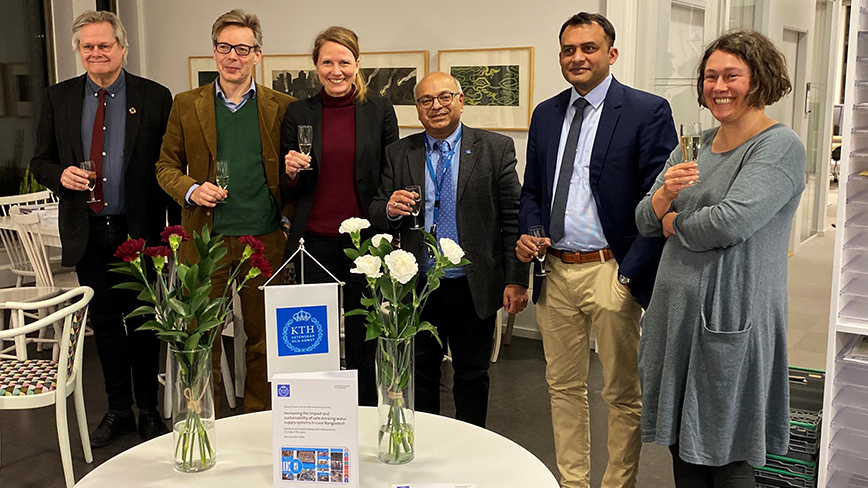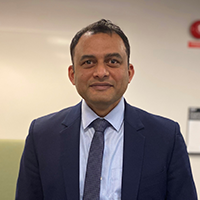Congratulations Md Ahasan Habib for successfully defending your PhD!

Md Ahasan Habib’s research focuses on increasing the impact and sustainability of safe drinking water supply systems in rural Bangladesh. The study provides evidence on how to improve project design and thereby increase access to safe drinking water.
On 19 January, Md Ahasan Habib successfully defended his dissertation, titled “Increasing the impact and sustainability of safe drinking water supply systems in rural Bangladesh. Randomized experiments with interventions in the project life cycle”.

Globally, access to safe drinking water remains a challenge. Md Ahasan examines the situation in Bangladesh, where the proportion of the population using safely managed drinking water is 59 per cent and the proportion using improved drinking water is 99 per cent. How can this gap be minimized, avoiding the risks of exposure to arsenic and faecal contamination?
Government, NGOs and international aid agencies are providing technical support and subsidies to improve this situation, but very few studies evaluate the impact of these interventions on access to drinking safe water and sustainability.
In an effort to examine and consider the type of community participation required to enhance access to safe drinking water programs and ensure their long-term sustainability, Md Ahasan Habib conducted a series of experiment.
Specifically, he studied different types of decision-making modes in the interventions, and whether the community contribution requirements in the water projects (in cash or in labour) had any affects. He also studied the effects of technology choice and wanted to understand if and how changes in cleaning practices could improve water quality in community water sources.
What are your most important finding?
“Not all participatory approaches have the same impacts on projects to provide safe drinking water in rural Bangladesh. Community participation in consensus-based decision-making doubles impact and increases sustainability. But asking communities to contribute cash or labour can decrease take-up and reduces cost-effectiveness, because it increases overheads by more than the value of the contributions. Getting cleaning and maintenance practices right is essential.”
The study started back in 2019, and you arrived at KTH at the time of the Covid breakout. What has this journey taught you, Md Ahasan Habib?
“I started my academic PhD program at the KTH campus on March 11, 2020. Although there were no general lockdowns, public events were limited, and all classes were conducted remotely. Physical contact on campus became non-existent. Initially, I struggled to focus on my studies, and as time went on, the isolation during the Covid pandemic took a toll on my mental well-being. It was a constant battle within myself—whether to continue my studies or return home. Eventually, I adapted to life in the midst of the pandemic and successfully completed my PhD in just four years!”
What will be your next step in your professional life?
“As a researcher and development practitioner, my focus is to work in both academic and practical domains, aiming to achieve SDG-6. I intend to accomplish this goal by leveraging research findings to design, plan, and implement cost-effective interventions for the long-term sustainability of drinking water supply programs in low and middle-income countries, where access to safe drinking water continues to be a significant challenge.”
The research was funded by Formas – a Swedish Research Council for Sustainable Development.


